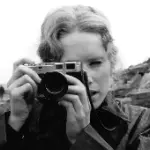There are many series that I regret having been cancelled: "1899", "Daredevil" (which luckily returned in some form), "Inside Job", "The Chilling Adventures of Sabrina", etc. But the case that I find most incomprehensible is undoubtedly that of "Mindhunter".
Netflix is one of the platforms that cancels the fewest series (although all the ones I mentioned are precisely from the red N), it has an extensive catalog of true crime, and from the beginning they have worked with David Fincher because he was one of the most sought-after directors when they were a video store. So it's very hard to understand why Mindhunter didn't have more advertising and was more viewed, it's an incredible series that seems to fit perfectly with the type of subscribers that the streaming platform has.
Although it must be said that Netflix apparently offered to continue the series with a lower budget and Fincher was the one who refused because he didn't want to sacrifice quality. He may be my favorite director, but the amount of projects he leaves unfinished is very annoying and disappointing haha.
And since the chances of a third season finally seeing the green light one day are so small, we can only wonder, what would the next episodes have been like?
Brief reminder summary

The series primarily followed the work and lives of three FBI agents, focusing on the real-life events of the police investigations they were involved in but completely dramatizing their personal lives.
- Holden Ford: who is a representation of real-life agent John Douglas, the author of the book on which the series is based. Throughout the series, he is the most enthusiastic about forming psychological profiles of serial killers, even being criticized by his colleagues for being too fascinated by the subjects of study. From the end of the first season he also begins to experience panic attacks due to his strong involvement in his work.
- Bill Tench: a portrayal of the real-life agent Robert Ressler. Throughout the series, we see him much more affected by everything he hears from the killers, and we see how his work causes him family problems. During the second season, his quiet adopted son accidentally murders a baby with some friends, which worries Bill because it adds to other behaviors that resemble what he and Holden see in serial killers.
- Wendy: based on Dr. Ann Wolbert Burgess. She is a psychologist who joins the protagonists to help them in their investigation, even conducting some interviews herself in the second season alongside Greg, another of the team's collaborators.
My idea for a third season

A few years after the cancellation, one of the directors teased what we would have seen in the third season, saying that the series would have shown the protagonists building psychological profiles again and would have taken them to Hollywood, setting the events around 1985, about four years from where we left off.
There in the mecca of cinema the agents would split up to help directors Jonathan Demme and Michael Mann for their films "The Silence of the Lambs" and "Manhunter", an event that really happened, with Clarice Starling's boss (Scott Glenn) being in fact a representation of John Douglas (the real-life Holden). This plot would have been quite interesting, allowing us to see the influence of the FBI's work on these two great films and also being a nice homage to them, without which this series might not exist.
At the same time, we could also see Wendy talking about being a woman in the FBI with Demme and/or Jodie Foster, serving as inspiration for how Clarice's character experiences this same thing. And we might even see when the FBI allowed Scott Glenn to listen to the Toolbox Killer tapes, those gruesome recordings used to train agency agents and which we already saw Greg listening to in the first season.
But of course, the series shouldn't get lost in all these entertaining details when entering the world of cinema, emphasizing that the point of all this new exposition is that just as Holden and Bill taught the police to recognize the signs of a serial killer, the public should be able to do so too, and should be reassured that the tools to catch them are increasing. Highlighting the importance of the protagonists' work and its impact on pop culture

As for the agents returning to their interviews, I wish the series had introduced us to hospital killers. For this they could focus on the "angel of death" Donald Harvey, a hospital orderly who claimed to have killed 87 people (37 were confirmed), and was actually interviewed by John Douglas. There are many serial killers who used their work in a hospital to kill, and what's interesting about them is how prophilic they can be and their motives.
Throughout the series, we saw some killers motivated by sexual pleasure, a hard life, or the belief that nothing matters anymore, but these types of hospital serial killers don't usually have any of these motivations. Generally, one of the most common reasons they have is to bring patients to the brink of death in order to revive them and look good in front of their peers, making them not really looking for murder but rather for it to be "collateral damage". While another reason is the so-called Munchausen Syndrome by Proxy, a disorder in which a person causes or invents symptoms in another person.
But I personally think the most interesting case for the series to explore would be those who do it out of compassion, those who seek to stop the patients from suffering. The aforementioned Donald Harvey confessed upon being caught that he killed his victims out of mercy, although sometimes he did it out of anger (he tried to kill 4 people outside the hospital). It would be amazing if Charles Cullen could appear, who is believed to have killed 400 people, making him the biggest serial killer in history, but at that time he hadn't even started killing (you can see his story in "The Good Nurse" with Eddie Redmayne).

Outside of those two main themes of the season, there would also be some police cases in which the officers help, but which do not last more than one or two episodes. And we also get more glimpses of the BTK killer, and small scenes where the agents begin to cross paths with his case, like that memorable scene from season 2 where Bill listens to the testimony of one of his survivors.
Showing throughout the season also Bill's new life without his wife and children, and Holden meeting a new girl.
My idea for a Fourth Season

After a quieter third season than the series had accustomed us to, the fourth and final season would be the most intense, finally showing us the agents behind BTK, the last case in John Douglas's career. In case you don't remember, BTK is the man we've been seeing in small scenes throughout the series, and who takes his name from the words Bind, Torture and Kill.
The season would quickly start with Holden and the others finally taking on BTK's case after he murdered again (1991), reviewing and compiling all the cases they believe may be his work. But due to the inability to find him, they decide to interview some killers of their type (methodical and with sexual purposes) to see if they can obtain something new useful.
The first of these new interviewees would be John Wayne Gacy, better known as “Pogo the Clown,” who would allow them to think for the first time that perhaps BTK is not a lonely stranger as they are used to, but that he could have a family, just as Gacy had a wife. But without the agents suspecting it, Dennis Rader (BTK) not only has a wife and daughter, but he is considered an exemplary father, goes to church every Sunday and is the leader of a group of scouts.
And the second interview would be conducted by Wendy with Dahmer (played by Evan Peters at Netflix's request to attract an audience), and they wouldn't get much out of it beyond obtaining the testimony of a cannibal person, it would be more than anything a bit of fan service like the appearance of Manson.

As the episodes progress, we see how Holden begins to obsess over the case while having to take on dozens of others, suffering from stress-related panic attacks along the way, and beginning to fear that the profiles he managed to build might not be as foolproof as he thought. And added to this is the fact that Bill and Wendy would accuse him of seeming to admire this killer, which would have some truth to it, because Holden is surprised by how calm BTK seems to remain when something in his murders goes wrong and the fact that he can stop killing for so long.
The season itself would have a structure similar to "House of the Dragon" or "Zodiac", with time jumps between episodes to cover the years of the BTK investigation (1991-1995). Overall, the season would be quite similar to Fincher's film, with Holden obsessed with the case in the same way that Robert Graysmith (Jake Gyllenhaal) was with the Zodiac case.
Already in the last episodes of the series, Bill would receive a call from his ex-wife telling him that she is afraid of his son and that she needs him to go, immediately embarking on a 6-hour trip to the address.. But when he finally arrives, he finds the police outside, who tell him that the boy killed his mother, emotionally shattering Bill. The police tell him they think he killed her because he killed someone else and his mother wanted to turn him in.

Finally, Holden finds out about this, which, combined with an argument with his now wife and the stress of all the cases he's investigating, ends up causing him to collapse in his office and faint. When he wakes up in the hospital a week later, he discovers he had encephalitis, which caused him to go into a coma and his body to be paralyzed. A few months later he made a full recovery, but decided to retire from the FBI for health reasons, leaving the BTK case unsolved.
Once again, Fincher left us with an unsolved case, because the important thing was the investigation of our protagonist trio, not catching the killer. Although Dennis Rader was finally caught in 2005, and in a rather humorous way (he believed the police that he could send them a floppy disk without them being able to trace him), giving us the serie a final nod to this with a scene in which Rader burns the floppy disk and sends it.
The series would end with Bill retiring as well, maintaining his friendship with Holden, while Wendy and Greg would take over the FBI's Behavioral Analysis Unit (BAU).

This would have been what I would have liked to see in the series if it hadn't been cancelled, although I'm sure Fincher would have found a way to surprise by going against expectations, perhaps making everything built on the BTK barely seen in a couple of episodes.
What would you have liked to have happened in the following seasons?
- If you like theories about movies and series, I invite you to follow me on Instagram where I compile the best ones: @TheBigCinemaTheories






























































View replies 2
View replies 0
View replies 0
View replies 0
View replies 0
View replies 0